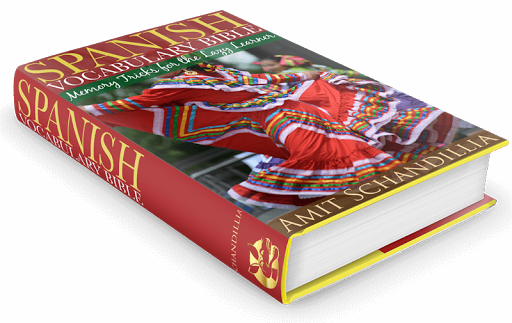1. Antier
Some prefer anteayer which is actually the origin of antier. Antier started off as slang but is now considered more or less standard, leastwise in the Americas. Ayer is Spanish for yesterday and antes is before. So, anteayer or antier translates into day before yesterday. But that’s hardly a word-for-word translation, is it? If only English had a single-word equivalent instead of three words. Spanish prudes may also prefer a longer three-word version, antes de ayer. But let’s stick to antier as that’s what most locals prefer, unless you were aiming to sound like a literary snob.
Ella fue atropellada la noche de antier.
She was run down two nights ago.
Sólo está fuera desde anteayer.
He’s only been gone since day before yesterday.
2. Concuñado
 |
| Spanish vocabulary is way richer than English when it comes to relationships Photo credit: Jacinta Lluch Valero licensed CC BY SA 2.0 |
Somos Raúl y Diario; somos concuñados.
We are Raúl and Diario; we are half-brothers-in-law.
3. Consuegro
This is yet another testimony to the ever affectionate Hispanic family tree. Consuegro has no direct translation in English. When your kid gets married, consuegro is his or her father-in-law. The quintessential family bonding or the creativity of Spanish vocabulary – you’re free to call it what you prefer. Imagine speaking of my son’s father-in-law – what a mouthful! Compare that with consuegro. Short, crisp, and gets the point across just fine.
Tal vez algún día, seremos consuegros.
Maybe someday, we’ll be in-laws.
4. Enchilar
This one is more common in Mexico than elsewhere but mighty useful nonetheless. Enchilar derives from chile which is what makes you foam at the mouth if eaten frivolously. Thus, enchilar can mean either to add chile to something or to become red after eating chile. I dare you to find a word that conveys this in English. If you can recall enchilada at this point, that’s probably because the term derives from enchilar. In Mexico, again, the verb can also have figurative connotations, e.g. to be furious, or to annoy.
Se enchiló, esperando la respuesta.
She was freaking out, waiting for the answer.
Lamento si mi compañero lo molestó.
Sorry if my partner annoyed you.
5. Estrenar
The closest you can get in English is to break something in. That is to try something for the first time. The French equivalent, to an extent, is début and can also be used in English. But all said and done, there’s actually no single-word equivalent of estrenar in the entire English lexicon!
¿Has estrenado ya el coche?
Have you tried your new car yet?
El piso es a estrenar.
It’s a brand new apartment.
6. Merendar
 |
| Who knew Spanish vocabulary had a word for snacking out! Photo credit: Martha Silva licensed CC BY SA 2.0 |
Pablo me invitó a merendar en su casa.
Pablo invited me to his place for tea.
Dile a Lupe que te dé de merendar.
Tell Lupe give you a snack.
7. Tuerto
This one’s awesome! If it’s your fantasy to be able to talk about them pirates (the Hispanics made some real badass pirates back in the day, believe it or not) in Spanish, you’re going to find this word immensely useful. Tuerto is a person with only one eye. See the pirate reference there? Alright, I admit that’s grossly stereotyping an entire community but who really cares? Good luck digging out a direct equivalent for this beast in English. The closest you can manage is one-eyed but that again would be a compound. By the way, here’s a fun fact about tuertos. In the Spanish-speaking community, if you run into a spell of bad luck, you’re said to have been seen by a tuerto. Yeah, they’re said to jinx whoever they see. That’s so metal, isn’t it?
Me miró un tuerto.
A one-eyed man saw me. / I was jinxed.
Busco a un elefante tuerto llamado Bruno.
I’m looking for a one-eyed elephant named Bruno.
There are many more Spanish words that elude easy translation but covering them all would warrant a fat tome instead of a measly 1,000-word article. This, however, should give you a fair idea of how unique the Spanish vocabulary can be and should arm you to the teeth for those stray occasions where one doesn’t stop ranting about how rich English is compared to Spanish when it comes to vocabulary. Can you think of any more examples? Try looking, it’s a lot of fun finding them! Or, how about English words that don’t have direct Spanish equivalents?



.png)